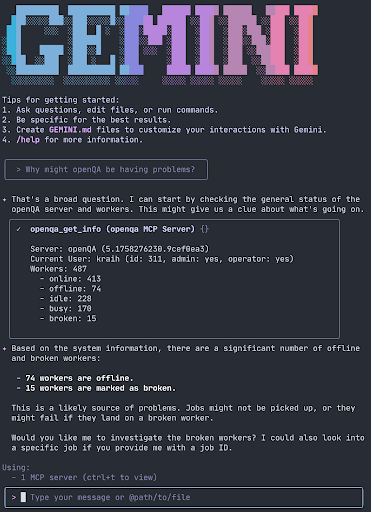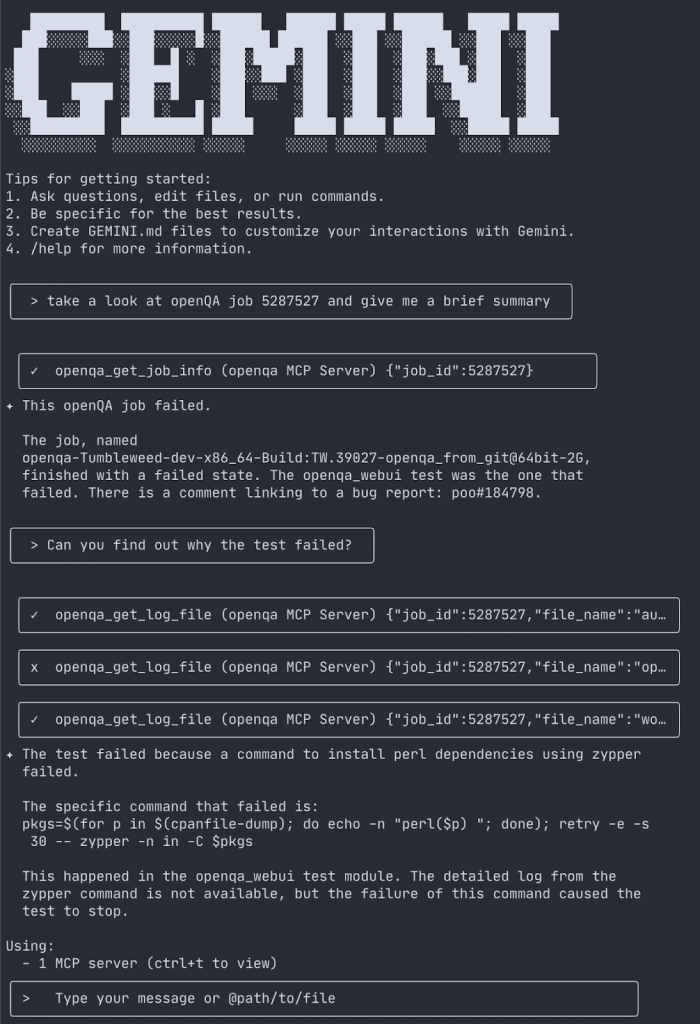openQA introduces native MCP Support
As large language models (LLMs) usage continues to rise, there are opportunities and needs of organizations to leverage them for proactive change, troubleshooting and performance optimization. As a result, we are pleased to announce native Model Context Protocol (MCP) support for openQA. It is now live for all users. Anyone with an openSUSE account can make an API key and use it.
Background
Our customers, CIOs and CTOs, who we speak with daily, are under pressure to more efficiently manage their infrastructure. Enter MCP, a valuable tool for organizations needing to connect fragmented data and workflows. MCP is a standard that allows LLMs to interact with web services. MCP is supported natively by openQA, but it needs to be enabled manually in openqa.ini.
These tools act as context providers, making their data available. The LLM acts as consumer of the information and asks for more information when needed, under human supervision.
Once enabled, the experimental MCP endpoint becomes available under the path /experimental/mcp. At the moment all implemented MCP tools are read-only, that means LLMs can review information provided by openQA, but are unable to make changes or trigger actions.
Once write operations become available with future updates, they will have to be enabled with a different setting in openqa.ini for security reasons.
Most MCP clients today support Bearer token authentication, so that is what openQA relies on as well. More authentication mechanisms will be added as the technology evolves.
As SUSE engineers maintain the MCP Perl SDK, and openQA is written in Perl, our engineers developed native MCP support to help our QE engineers in their day-to-day work.
This is developed specifically for AI and is not based on existing APIs. It can be used to:
- Learn status of openQA server: Is it running? Are workers down?
- Learn more about specific openQA test jobs: What is the test suite status? What are the settings? What are the available log files?
- Troubleshoot: Retrieve individual log files for test jobs to let the LLM figure out what exactly went wrong
Example conversation with gemini-cli:

Another example:

Availability
The initial release will begin with three MCP tools, and the feature will grow over time based on user feedback. This will be primarily used by SUSE QE engineers and members of the openSUSE community, who spend a lot of time reviewing test results and tracking down reasons for why automated tests have failed.
We’ve been hard at work on incorporating MCP into other parts of our product portfolio and are excited to share more soon. We look forward to seeing your use cases of this native MCP support.
Related Articles
Jul 10th, 2024
Image Changes in AWS EC2 for IMDS Access
Dec 15th, 2025
Linux 6.18: A Testament to the Power of Community Innovation
Jun 03rd, 2024